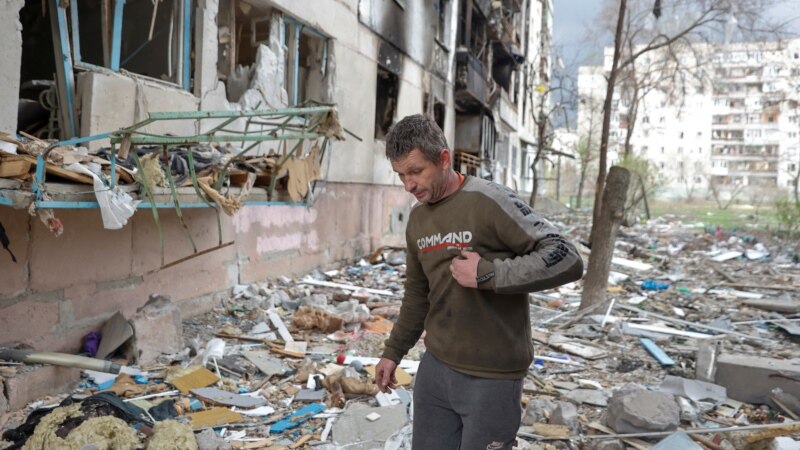Russia relentlessly shelled Sievierodonetsk in eastern Ukraine on Wednesday, with the Luhansk regional governor conceding that Moscow’s forces now control 70% of the city and that evacuation of civilians had been halted.
Some Ukrainian troops were still fighting against the Russian onslaught, Luhansk governor Serhiy Haidai said, but others had retreated.
“There is no possibility to bring in humanitarian aid,” Haidai said in a Telegram post.
But Haidai said that Lysychansk — the only other city in the Luhansk region not taken by Russia or Moscow-backed separatists — remains “fully” under Ukrainian control.
The battle for Sievierodonetsk remains crucial for Russia’s aim to take control of Ukraine’s industrialized Donbas region in the eastern part of the country after it failed earlier during its three-month offensive to topple the government of President Volodymyr Zelenskyy or capture the capital, Kyiv.
If Russia were to capture Sievierodonetsk and its smaller twin Lysychansk on the west bank of the Siverskyi Donets River, it will hold all of Luhansk, one of two provinces in the Donbas that Moscow claims on behalf of separatists and a key war aim of President Vladimir Putin.
Oleksandr Stryuk, the head of the Sievierodonetsk city administration, told Reuters that Ukrainian forces now control just 20% of the city, Russian forces have well more than half, and the rest has become a “no-man’s land.”
“The 20% is being fiercely defended by our armed force,” Stryuk said. “Attempts are being made to drive out the Russian troops … We have hope that despite everything we will free the city.”
Haidai, the Luhansk governor, said Lysychansk was easier to defend since it is located on a hill, but he warned that Russian forces would target it with artillery and mortars once in full control of Sievierodonetsk.
Leonid Pasechnik, the leader of the pro-Moscow Luhansk People’s Republic, told Russia’s TASS news agency that Russian fighters had advanced slower than expected, in order to safeguard Sievierodonetsk’s infrastructure and “exercise caution around its chemical factories.”
Jan Egeland, head of the Norwegian Refugee Council aid agency, which had long operated out of the city, said up to 12,000 civilians remain trapped by the fighting in Sievierodonetsk, without sufficient access to water, food, medicine or electricity.
Before the war, the city was home to about 120,000 people.
Some material in this report came from Reuters and The Associated Press.

